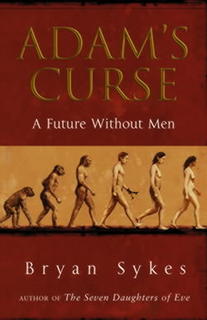Monday, May 28. 2007
Why do men have nipples?
The male nipple - it is something most of us take for granted. "It is there because it is there!". Every other part of the human seems to serve some purpose, each specialized to perform a particular function. As a kid, I pondered over many such mundane things and the male nipple was a baffling one. I didn't get a satisfactory answer or rather any real answer, from anyone. It really wasn't the sort of question you could ask just anybody. A Maldivian primary school teacher would most certainly have laughed at a student who asked such a 'silly' question and would most likely not know of a proper answer anyway. I had had some bitter encounters while in the primary school educational system and had learnt to not ask unwanted questions (I remember being ridiculed for stating Newton's third law of motion - for every action there is an equal but opposite reaction - AND being laughed at for saying that all it takes to make a navigational compass is a magnet and that they work on the principle of the attraction to the magnetic field of the earth). Since this was before the Internet was publicly available in the Maldives and knowledge had to be meticulously extracted from books and large encyclopaedias. To my disappointment, none of the latter that I had shed any light on the matter...
It maybe most obvious why women have nipples but why do men too sport those two so familiar dots on their chests? Is it an element of deliberate design? Placed there for aesthetics? Are they left over remnants on the male body from a time when they weren't so redundant? Has it something to do with the specifics of genetics? The male nipple is one oddity that, in my view atleast, deserves an answer. After all, it is such oddities that often shed greater understanding of ourselves and the world around us!
What do YOU think the answer is?
Anyway, if it tickles your interest, here are some answers that may help you put the question to rest.
- Quite a thorough scientific answer at Scientific American: Ask the Experts
- A shorter answer at A moment of science - Indiana University
It maybe most obvious why women have nipples but why do men too sport those two so familiar dots on their chests? Is it an element of deliberate design? Placed there for aesthetics? Are they left over remnants on the male body from a time when they weren't so redundant? Has it something to do with the specifics of genetics? The male nipple is one oddity that, in my view atleast, deserves an answer. After all, it is such oddities that often shed greater understanding of ourselves and the world around us!
What do YOU think the answer is?
Anyway, if it tickles your interest, here are some answers that may help you put the question to rest.
- Quite a thorough scientific answer at Scientific American: Ask the Experts
- A shorter answer at A moment of science - Indiana University




